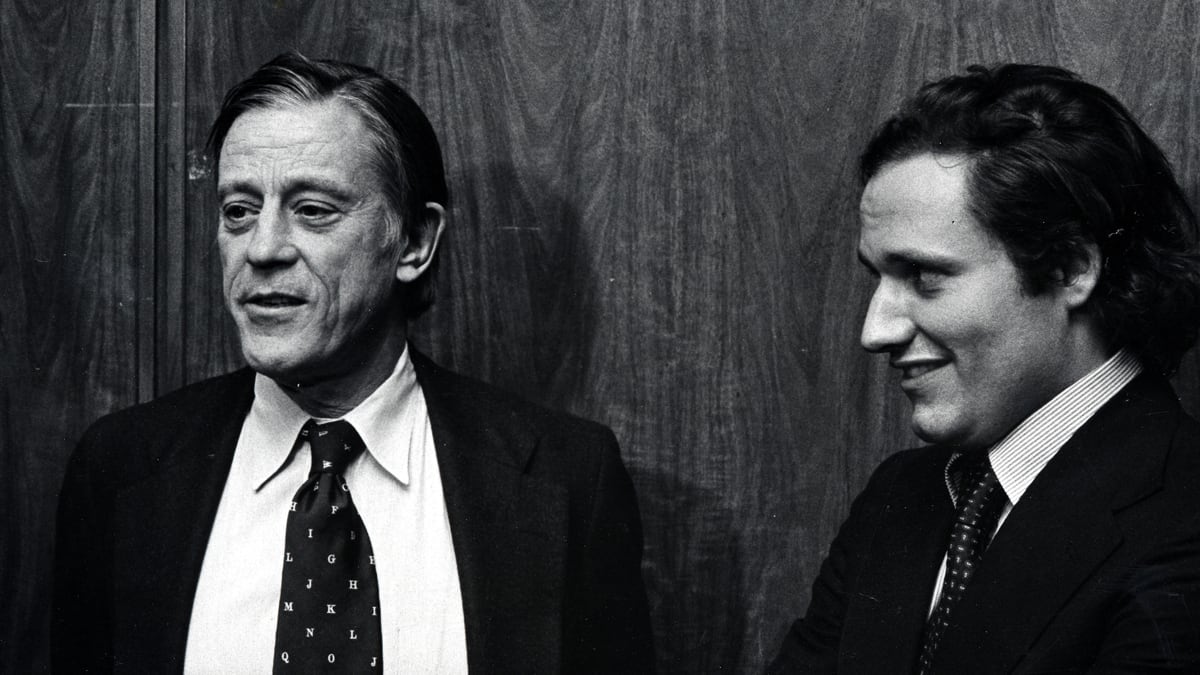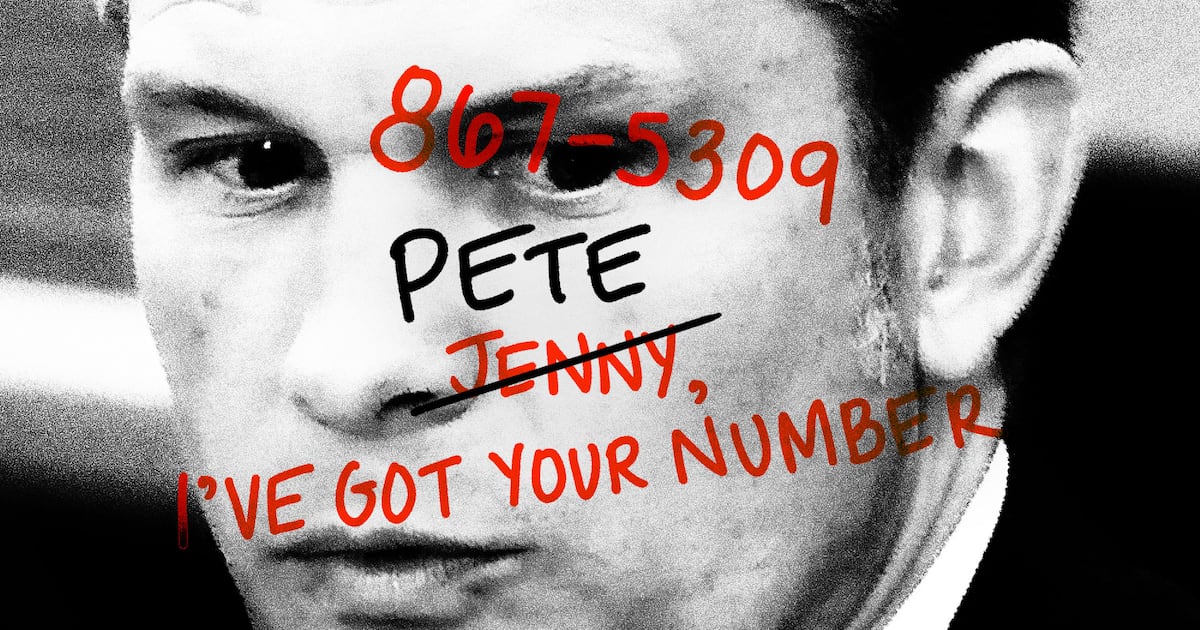In April 1974, a few months before President Nixon resigned, Ben Bradlee, the executive editor of The Washington Post, gave one of the most thoughtful speeches of his life. In it, he talked about the fact that journalism is produced in “an adversary environment where the goals of the reported inherently conflict with the goals of the reporter and the reader.”
“It is this daily conflict that gives concrete importance and meaning to the First Amendment, to freedom of the press,” Ben said. “Without that freedom there is no conflict, and without that conflict there is no truth.”
During the past two weeks, my former boss Bob Woodward has compared me to Richard Nixon, referred to me in the pages of The Washington Post and The New York Times as “dishonest,” and generally attempted to discredit me and my authorized biography of Bradlee, Yours in Truth, which was released by Random House last Tuesday. The prevailing narrative in nearly every description of my work thus far, much of which has been influenced by Bob, is that I “betrayed” my former mentor to write a cheap “tell-all.” The New York Times, in a Styles section piece published Sunday, compares my book, a 473-page, deeply researched portrait of Bradlee, to the novel The Devil Wears Prada.
Bob and others are after me not because I violated agreements or published things I didn’t have “approval” to publish, but because of where the story led me and what I felt obligated to report. In 2000, in a dedication to his book Maestro, which I helped to report and write, Bob wrote of me: “His standards of accuracy and fairness are the absolute highest ... No one ever did more or better in the crucible of book writing.” Those standards have not changed; it’s just that I uncovered some information that Bob Woodward happens not to like, and he is doing everything he can to distract attention from it. If there is any lesson that Ben Bradlee taught me in the four years I spent working with and studying him, it is that powerful people rarely welcome the truth and will often go to great lengths to keep it from coming out. Ben dealt with that throughout his career, and I am seeing it firsthand right now.

Let’s address this “betrayal” narrative head on. Bob Woodward was my full-time boss from 1999 to 2002. In 2007, when I was back helping him out for a few months, he introduced me to Ben and his wife, Sally Quinn, for a possible book project of Ben’s. In 2008 I coauthored a book with Ben and Sally’s son, Quinn—and in that same year, Ben and Sally gave me permission to write a book about Ben, with no strings attached.
In 2010, while digging through some newly arrived boxes from Ben’s archives, I came across an interview that Ben had done in 1990. In it, when asked about Bob’s depiction of his relationship with Deep Throat—the garage meetings, the flag in the flowerpot—Ben had said, among other things, “There’s a residual fear in my soul that that isn’t quite straight.” For the editor of The Washington Post during Watergate to have had these kinds of doubts in 1990, while he was still the executive editor of the paper, deserved further exploration.
I brought Ben’s comments, and a follow-up interview that I conducted about them with Ben in 2010, to Bob’s house in March of last year to get his reaction. Four days later, as I recount in the book, Bob came to Ben’s house and made an impassioned plea, first to Ben and then to me, to leave that material out of my book. Bob, the champion of free speech and a reporter’s right to report the truth, directly commanded me not to use material that he thought might make him look bad: “Don’t use the quotes, Jeff.” Why? Because doing so would, as he said, “give fodder to the fuckers” out there.
I was faced with a choice: obey my former boss and ignore a historically relevant comment made by the subject of my book purely to please Bob or stick to my reporting. Any journalist knows that this is not actually a choice. When I asked Ben about it again, in the wake of Bob’s reaction, Ben stood by his comment from 1990 and repeatedly expressed his support of my decision to report it—with the caveat that he was only doubting some of the Hollywood aspects of the portrayal of Deep Throat, not the reporting that went into The Washington Post. (I included this caveat both in the book and in the excerpt that ran in New York magazine last week.)
The second reason, I think, that Bob has decided to come after me, and the only reason he has given me for why he is calling my reporting “dishonest,” is that I did not bring the “grand juror” memo to him and to Carl Bernstein for comment before I finished writing my book. (In the course of my research, I discovered evidence that Carl and Bob had conducted an interview with a Watergate grand juror. This is an allegation they have consistently denied; as recently as last year, Bob told a crowd at the Poynter Institute, an educational organization for journalists, that he and Carl “got nothing from the grand jurors.”)
The memo, written by Carl, was dispositive: such quotes as “of course, I was on the grand jury” appear on the memo’s first page. I did not need Carl or Bob to tell me what I was looking at. I brought the memo to Ben—the subject of my book, let’s not forget—and elicited his reaction to the memo and the penetration of the grand jury, which I included in Yours in Truth. In a letter published in response to the excerpt in New York magazine, Bob and Carl do not challenge the accuracy of my reporting about the grand-jury penetration, only its historical weight.
An additional aspect of the “betrayal” narrative hinges on some of the personal details I include in the book. In Sunday’s New York Times Styles piece about me, people close to Sally Quinn allege that I used private family moments I wasn’t supposed to use. The vast majority of my book is sourced in primary documents and interviews—notes are available at www.yoursintruth.com—but I did recount a few social conversations.
Let me be clear why. First, the Post, its personnel, and other aspects of Ben’s life were frequent subjects during meals I shared with Ben and his family and friends. On all of these occasions, Sally, Bob, and many of the others who came to the table were acutely aware of my role as Ben’s authorized biographer and would often make comments that were unequivocally aimed at me and at the historical record. Second, Ben wrote an entire book in 1975, Conversations With Kennedy, largely based on his notes of intimate conversations and private interactions with his friend John F. Kennedy. And Sally has been the master of hard-nosed, compelling, take-no-prisoners profiles based in part on what she was able to observe in social situations. The idea that Ben Bradlee, Sally Quinn, Bob Woodward, or anybody else was naive about what was going on here is simply not plausible. These are some of the most experienced and sophisticated journalists on the planet. Everybody knew that I was always wearing my hat as Ben’s biographer.
In the permission letter that both Ben and Sally signed when I undertook my book, Ben wrote, “I have given Jeff full access to my archives ... he has our permission to use what he deems necessary for the successful completion of the project.” Ben explicitly instructed me not to pull punches, and he never once told me not to use something I had found, including personal correspondence. When I brought the grand jury memo to him in March 2011, he said, “Don’t feel that you have to protect me. You and I have a great relationship, and there’s nothing you can do in this book that’s going to change it. So just follow your nose.”
This was a consistent attitude. Once, at dinner, Ben raised his glass and said, “I don’t give a fuck what you write about me.” He never placed any limitation on what I could use or not use. Whenever we talked about the book, he would say, “I’ll read it in hardcover.” Both he and Sally insisted that the only way for the book to be credible was for it to be independent. To her great credit, Sally was as adamant about my authorial freedom as Ben was, until last week.

This is the danger of writing about powerful living people. Nobody has alleged that anything I’ve written is untrue; they can’t, so instead they’re trying to impugn me and my motives. My motive has always been to write the best, truest, and most thorough portrait of Ben Bradlee that I could muster. I did the best I could on that front. But this was biography, not hagiography, and for me to ignore depth and difficulty—the fact that Ben’s life wasn’t always perfect—would have been to commit a lie of omission that I could not square with my obligation to tell the truth.
It’s been a hard couple of weeks. My journalistic responsibilities were always clear to me, but that doesn’t mean any of this was easy. The allegations of betrayal sting, even though I think they’re completely unfounded. I wish it could have been different.
But I don’t think the reaction thus far is a reaction to what I’ve written in my book. Anybody who alleges that Yours in Truth casts Ben in a “bad light,” as the Times reporter did, simply hasn’t read it. I can hope only that people will read it, see it for what it really is, and get a chance to spend some time with the Ben Bradlee I came to know and love—a brilliant, complex, and legendary newspaper editor who changed the course of American history. That man shines through on every page.





